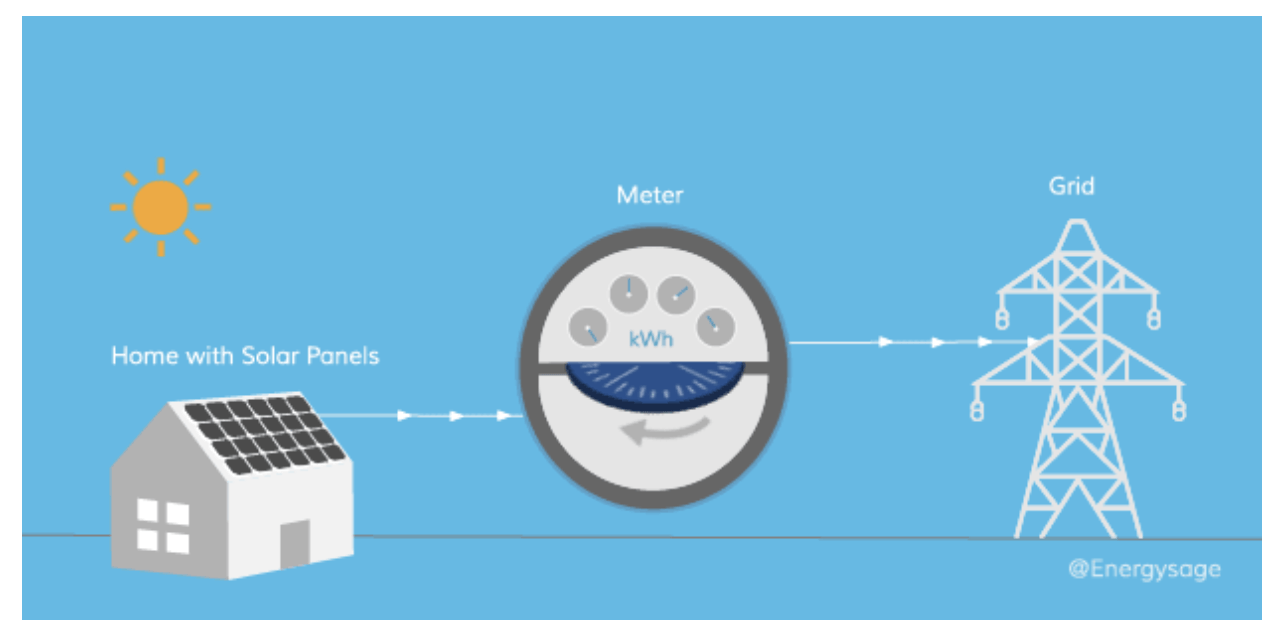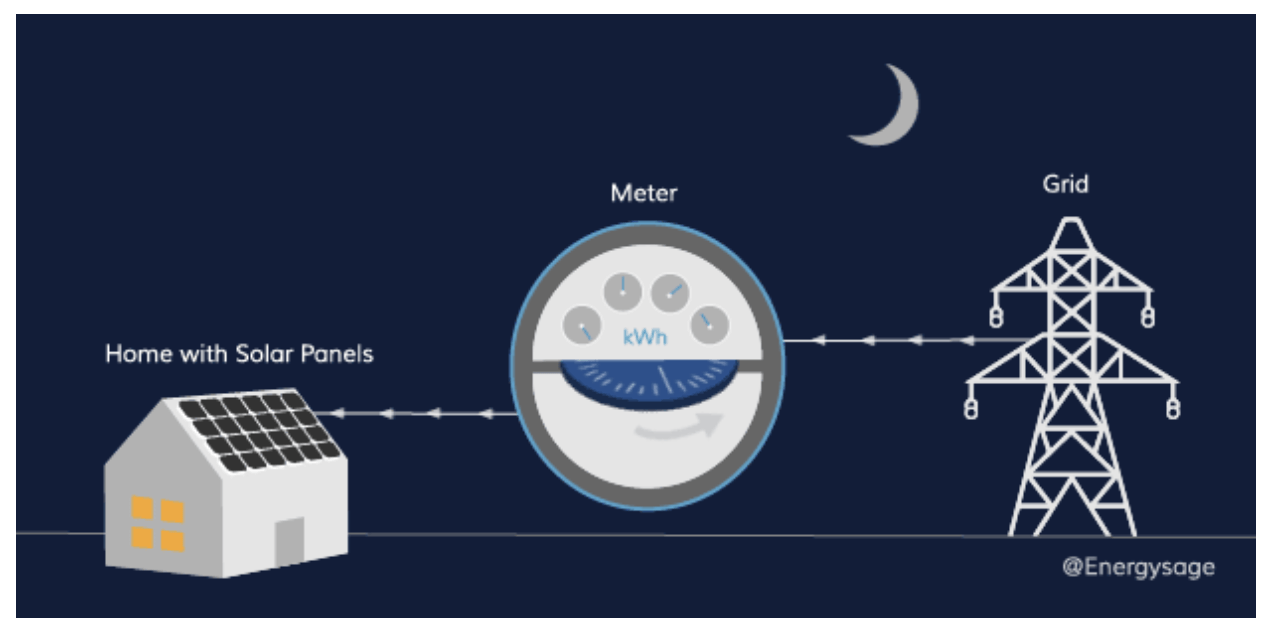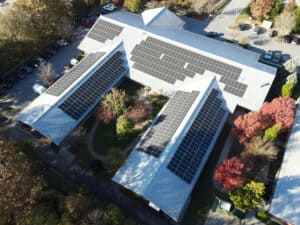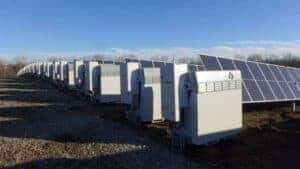Net metering is a billing mechanism that credits owners of solar energy systems for the electricity they add to the utility grid system, according to SEIA. It is one of the incentives to install solar systems for both business owners and homeowners.
How does net metering work?
The mechanism behind net metering is quite simple. During the daytime, solar panels convert solar power to electricity for the building. When the power generated by the solar panels exceeds the need of the building, the extra energy is sent to the grid in exchange for solar credits. Instead of receiving a check for sending the electricity back to the grid, solar credits allow the facility to exchange electricity with the grid during nighttime, or when its solar panels are not producing enough electricity to support normal operation of the facility. The building is only billed for the net energy use.
Solar energy systems typically hit peak electricity production in the afternoon, according to Energy Sage. However, the need for electricity in offices or other facilities does not necessarily peak during this time. As a result, by sending extra power to the grid, facilities receive solar credits that allow them to use energy at a much lower price during their peak time.
Hence, net metering helps facility managers balance solar electricity use during the hours of operation. It also ensures there is enough electricity to use even when the solar panels are not producing enough electricity

Why should you care about net metering?
Net metering allows facility managers to gain control over their electricity bills. For example, according to SEIA, California public agencies and schools will save $2.5 billion in electricity costs over the next 30 years using net metering.
Net metering also provides jobs and economic benefits to users. It increases the demand of solar energy systems and creates more jobs for American workers.
Most importantly, it allows buildings to generate their own electricity cleanly and efficiently.
However, one thing worth noting is that not every state in the U.S. provides net metering. The states do not provide net metering include Alabama, Georgia, Hawaii, Mississippi, Nevada, South Dakota, Tennessee, Texas, according to Energy Sage. The rest of the states allow net metering, and thus companies in these states can enjoy the benefits of net metering and save money through using it.
EnergyLink will assist in allowing you to take advantage of the best practices in the industry to reap the benefits and incentives they deserve. If you wish to learn more about net metering, feel free to contact one of our certified engineering.






